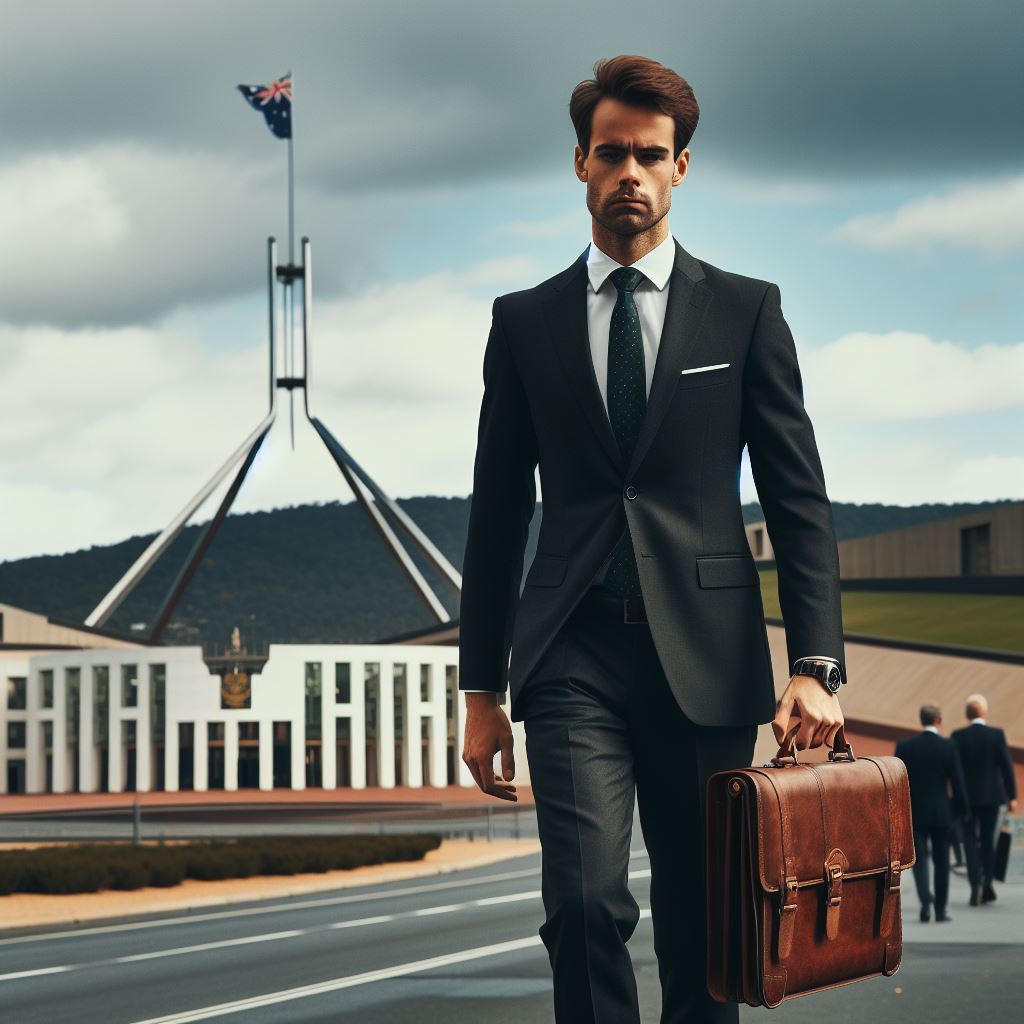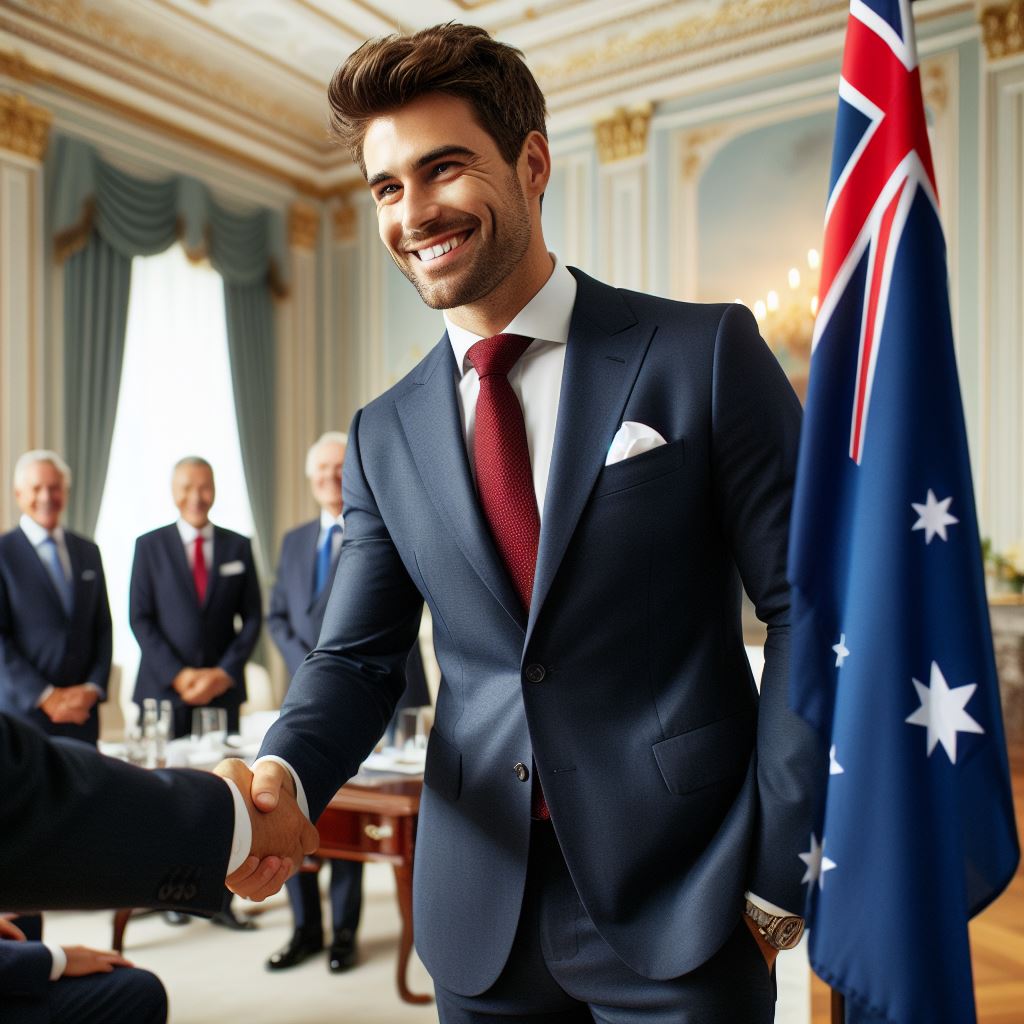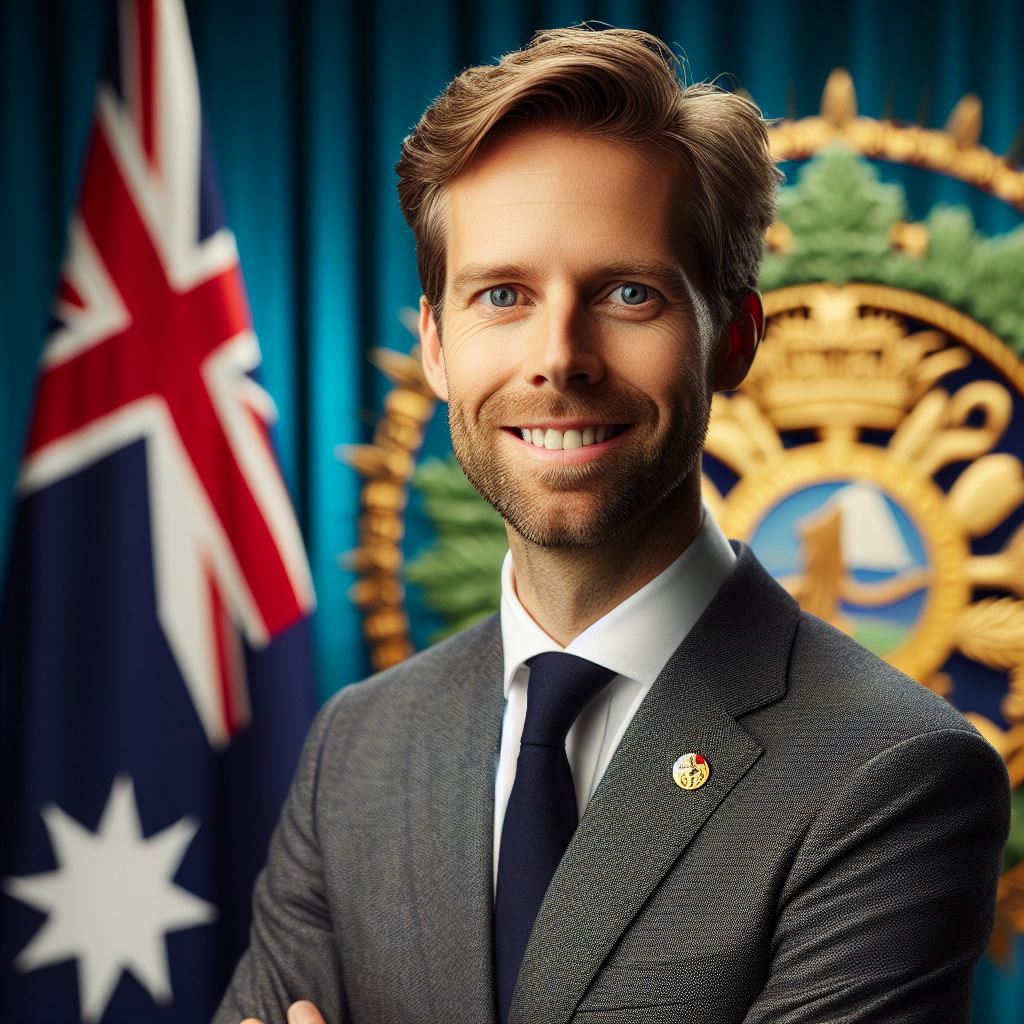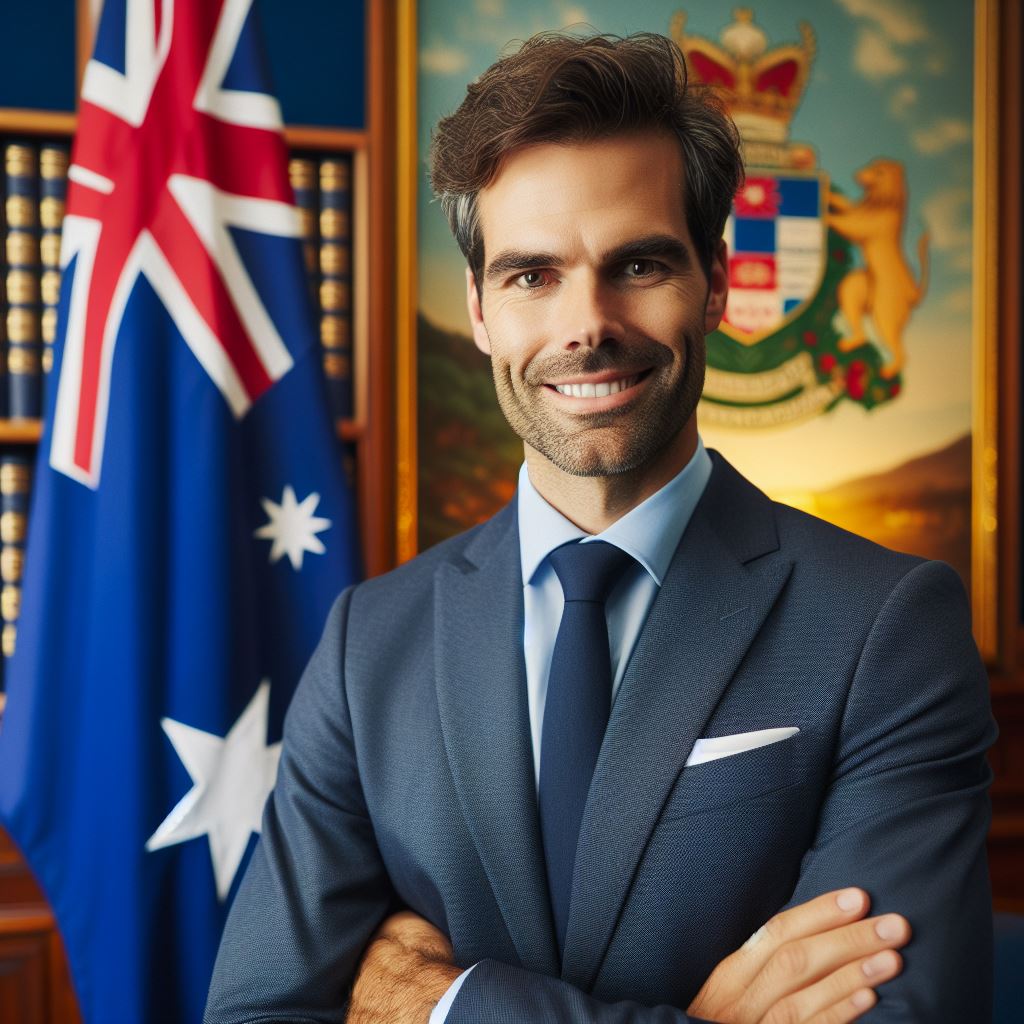Introduction
Embarking on the nuanced terrain of international relations, the concept of diplomatic roles emerges as a dynamic force shaping global interactions.
Diplomacy, as a multifaceted practice, extends beyond conventional perceptions, influencing the very fabric of international affairs.
At its core, diplomatic roles encapsulate a spectrum of responsibilities and functions undertaken by individuals representing a country on the global stage.
These roles encompass not only the formal negotiations and treaties but also the subtle intricacies of fostering relationships, building bridges, and navigating the complexities of cross-cultural communication.
Diplomats serve as the face of their nations, entrusted with the delicate task of safeguarding national interests while promoting cooperation and understanding.
Understanding the intricacies of diplomatic roles is paramount in navigating the intricacies of international relations.
The importance lies not merely in acknowledging the formal duties but in comprehending the subtle yet influential impact diplomats wield.
Their decisions, negotiations, and strategic maneuvers reverberate across geopolitical landscapes, influencing alliances, trade agreements, and global security.
Therefore, a profound understanding of diplomatic responsibilities is not just an academic pursuit but a strategic imperative for nations and individuals alike.
It empowers stakeholders, from policymakers to citizens, to grasp the dynamics that shape the international stage, fostering informed perspectives and contributing to the building of a more cooperative and interconnected world.
As we delve into the depths of diplomatic roles, we unravel the threads that weave the intricate tapestry of global diplomacy, emphasizing the pivotal role each diplomatic actor plays in the complex dance of international affairs.
Definition of Diplomatic Roles
In international relations, diplomatic roles refer to the functions and responsibilities assigned to diplomats representing their respective countries. These roles play a crucial role in maintaining peaceful relationships and resolving conflicts between nations.
Examples of common diplomatic roles include ambassadors, who serve as the highest-ranking diplomatic officials and represent their countries abroad. They engage in negotiations, promote cultural and economic ties, and advocate for their country’s interests.
Other diplomatic roles include consuls, who provide assistance to citizens living or traveling abroad, and attachés, who specialize in specific areas such as defense, trade, or agriculture. These roles require diplomats to possess a deep understanding of international law, politics, and diplomacy.
Significance of diplomatic roles in international relations
The significance of diplomatic roles in international relations cannot be overstated.
Diplomats act as intermediaries between nations, facilitating dialogue and negotiations to prevent or resolve conflicts.
They promote cultural exchanges, economic cooperation, and build trust between countries.
Diplomatic roles also involve representing their countries in international organizations such as the United Nations, where diplomats discuss and debate global issues, form alliances, and seek common ground on various topics.
They contribute to shaping international policies and agreements that affect nations worldwide.
Furthermore, diplomats play a crucial role in crisis management.
They intervene in tense situations, mediate disputes, and work towards peaceful resolutions.
Diplomacy is often the preferred method of conflict resolution, as it offers a peaceful and non-confrontational approach compared to military action.
In addition to their diplomatic functions, diplomats also engage in public diplomacy, which involves promoting their countries’ image, culture, and values.
Through public speeches, cultural events, and media engagements, diplomats strive to build positive perceptions and relationships with the host country and its citizens.
Diplomatic roles also extend to the protection of their citizens abroad.
Consuls provide necessary assistance to individuals facing legal or medical issues, offering consular services such as issuing visas, passports, and providing emergency support.
Moreover, diplomats engage in economic diplomacy, promoting bilateral trade and investment opportunities.
They facilitate business interactions, negotiate trade agreements, and resolve trade disputes.
Economic diplomacy is vital for enhancing economic cooperation, fostering growth, and creating job opportunities.
In a nutshell, diplomatic roles encompass a wide range of tasks and responsibilities, serving as the backbone of international relations.
They involve representing nations abroad, negotiating agreements, mediating conflicts, promoting cultural exchange, and ensuring the welfare of citizens.
These roles are crucial for maintaining peaceful relationships, resolving disputes, and fostering cooperation among nations.
Read: Fire Service Ranks in Australia Explained
Types of Diplomatic Roles
In the diverse world of diplomacy, there are various roles that diplomats undertake to serve their nations effectively. Each diplomatic role requires specific skills, expertise, and responsibilities.
In this section, we will explore the different types of diplomatic roles and delve into what each entails.
Political Diplomats
Political diplomats fulfill a critical role in international relations.
Their responsibilities involve representing their country’s interests and negotiating treaties or agreements with other nations.
These diplomats act as intermediaries and work towards establishing diplomatic ties, resolving conflicts, and promoting cooperation.
To succeed as a political diplomat, certain skills and qualifications are essential.
They must possess strong analytical abilities to assess complex situations and develop effective strategies.
Negotiation skills are also crucial, as diplomats must navigate diplomatic discussions and find common ground with other countries.
Furthermore, a thorough understanding of international relations, politics, and law is necessary to navigate the complexities of diplomatic negotiations.
Economic Diplomats
Economic diplomats play a vital role in promoting their nation’s economic interests on the global stage.
Their primary focus is to enhance economic cooperation, attract foreign investments, and expand trade relations with other countries.
These diplomats work closely with businesses, government agencies, and international organizations to negotiate trade agreements and remove trade barriers.
To excel in the role of economic diplomats, specific skills and knowledge are necessary.
A deep understanding of economic policies and trends is crucial to identify potential opportunities and challenges.
Knowledge of trade relations and international markets helps diplomats navigate intricate trade negotiations.
Furthermore, excellent negotiation skills and the ability to build strong relationships are vital to secure favorable economic outcomes for their country.
Cultural Diplomats
Cultural diplomats are responsible for representing and promoting their nation’s culture abroad.
They act as cultural ambassadors and organize cultural events, exhibitions, and exchange programs to foster cultural understanding and appreciation.
These diplomats play a crucial role in strengthening diplomatic ties through cultural diplomacy.
To fulfill the role of cultural diplomats, specific skills and expertise are required.
They must possess a deep understanding of their nation’s culture, history, traditions, and arts.
Excellent communication and interpersonal skills are necessary to effectively convey their cultural heritage to international audiences.
Cultural diplomats should also have expertise in event management and curating exhibitions to showcase their nation’s unique cultural identity.
Public Diplomats
Public diplomats are responsible for managing public opinion and fostering understanding between nations.
They represent their country’s political objectives and policies to foreign media, civil society, and the general public.
Public diplomats play a crucial role in shaping their country’s image, building relationships, and countering misinformation.
To be effective public diplomats, certain skills and attributes are necessary.
Strong communication skills, including public speaking and media relations, are vital for effectively conveying their country’s messages.
Cultural sensitivity and the ability to adapt to diverse cultural contexts are crucial for building relationships.
Public diplomats should also possess analytical skills to understand public sentiments and devise strategic communication plans.
In review, diplomatic roles encompass a wide range of responsibilities, each requiring specific skills and expertise.
Political diplomats negotiate on behalf of their country, economic diplomats promote economic interests, cultural diplomats represent a nation’s culture, and public diplomats manage public opinion.
Understanding these roles and the qualifications needed for each type of diplomat is essential for a successful diplomatic career.
Read: Firefighting Gear: What Do They Really Wear?
Challenges in Diplomatic Roles
Diplomats, as key architects of international relations, confront multifaceted challenges that demand adept navigation and resilience.
Active engagement in diplomatic arenas necessitates a keen understanding of the intricacies embedded within political, cultural, and security landscapes.
Political Challenges
- Navigating Political Landscapes: Diplomats face the intricate task of maneuvering through dynamic political landscapes, where shifting alliances, geopolitical tensions, and policy nuances demand astute diplomacy.
- Challenges in Negotiation and Diplomacy: The art of negotiation becomes a constant challenge, requiring diplomats to tactfully address disputes, forge alliances, and promote national interests while respecting the sovereignty of other nations.
Cultural Challenges
- Difficulties in Diverse Cultural Contexts: Diplomats grapple with the complexities arising from diverse cultural contexts, where nuances in language, customs, and traditions necessitate cultural intelligence for effective engagement.
- Importance of Cross-Cultural Communication Skills: Cross-cultural communication skills emerge as paramount, as diplomats must bridge cultural gaps to foster mutual understanding, trust, and cooperation on the global stage.
Security Challenges
- Security Risks and Safety Concerns: Diplomats operate amidst security risks and safety concerns, ranging from geopolitical tensions to terrorism threats, heightening the importance of ensuring the well-being of diplomatic personnel.
- Precautions and Protocols: To mitigate these risks, diplomats adhere to meticulous precautions and protocols, involving secure communication channels, situational awareness, and collaboration with intelligence agencies, ensuring the safety and success of diplomatic missions.
In summary, the diplomatic landscape is fraught with challenges that demand proactive, informed responses.
Diplomats, in navigating political intricacies, bridging cultural divides, and addressing security imperatives, play an indispensable role in shaping the trajectory of international relations.
Read: The Future of Firefighting in Australia
Your Personalized Career Strategy
Unlock your potential with tailored career consulting. Get clear, actionable steps designed for your success. Start now!
Get Started
Benefits of Diplomatic Roles
Diplomatic roles offer numerous benefits to nations, contributing to their global influence and negotiation power. Additionally, they enhance relationships and partnerships while facilitating conflict resolution.
Global Influence and Negotiation Power
Diplomatic roles are essential in shaping a nation’s global influence.
Diplomats act as representatives, effectively conveying their country’s interests, values, and policies to the international community.
They engage in discussions, negotiations, and formal meetings to advocate for their nation’s objectives and promote its stance on various issues.
By actively participating in diplomatic activities, nations can project their influence on the world stage.
Diplomats, armed with extensive knowledge of their country’s history, politics, and culture, act as key players in shaping international conversations and decisions.
Their influence allows them to protect national interests, provide perspectives, and contribute to global governance.
Moreover, negotiation power is a vital aspect of diplomatic roles.
Diplomats must possess effective diplomatic skills, including communication, persuasion, and compromise, to negotiate with other nations.
They engage in diplomatic dialogues and seek mutually beneficial agreements, sometimes even mediating between conflicting parties to achieve peaceful resolutions.
Being skilled negotiators enables diplomats to secure favorable outcomes for their nations.
They strive to protect national security, promote economic interests, and preserve cultural and social values.
Negotiation power ensures that nations can effectively meet their objectives while considering the concerns and interests of other countries.
Enhancing Relationships and Partnerships
Diplomatic roles play a significant role in building and strengthening relationships between nations.
Through diplomatic efforts, diplomats establish and maintain channels of communication, fostering dialogue and understanding.
They engage in cultural exchanges, educational programs, and people-to-people initiatives to promote cross-cultural understanding and respect.
The establishment of diplomatic relations paves the way for nations to collaborate and create partnerships.
Diplomats foster economic relationships by facilitating trade agreements, attracting foreign investment, and encouraging business partnerships.
They also support scientific and technological exchanges, enabling advancements through collaboration.
Additionally, diplomacy serves as a means for nations to address shared challenges collectively.
Diplomatic roles allow for the coordination of efforts to combat climate change, respond to global pandemics, and tackle terrorism or international crime.
By forging strong relationships through diplomacy, nations can leverage global cooperation to overcome complex issues.
Facilitating Conflict Resolution
One of the crucial functions of diplomatic roles is facilitating conflict resolution.
Diplomats act as mediators, negotiators, and peacemakers in resolving disputes between nations.
By promoting peaceful dialogue and understanding, diplomats seek to prevent or de-escalate conflicts.
Diplomatic efforts focus on addressing underlying causes of conflicts, identifying common interests, and finding compromises that satisfy all parties involved.
Through discreet diplomacy, behind-the-scenes negotiations, and formal peace talks, diplomats engage with conflicting parties to build trust and create opportunities for resolution.
Successful examples of conflict resolution through diplomacy include the Camp David Accords between Israel and Egypt, which brokered peace after years of hostility.
The Good Friday Agreement in Northern Ireland showcased the power of diplomatic negotiations in ending a protracted conflict.
The Iran Nuclear Deal demonstrated how diplomacy can prevent the proliferation of nuclear weapons and promote regional stability.
In general, diplomatic roles bring several benefits to nations.
They contribute to global influence and negotiation power, enhance relationships and partnerships, and play a crucial role in facilitating conflict resolution.
Diplomacy offers nations a platform to assert their interests, engage in international cooperation, and maintain peace and stability in a rapidly changing world.
Read: Understanding Public Sector Pay Scales
Uncover the Details: The Impact of Social Media on Aussie Politics
Discover More: Benefits and Perks for Aussie Police
Conclusion
A diplomat’s role is vital in international relations, requiring a variety of skills and qualities.
Summarizing the importance and scope of diplomatic roles, their impact cannot be understated.
Diplomats possess strong communication, negotiation, and problem-solving skills, along with cultural sensitivity.
They play a crucial role in promoting peace, resolving conflicts, and advancing a nation’s interests.
Furthermore, they serve as representatives and foster diplomatic relationships between countries.
To excel in diplomatic roles, individuals must demonstrate adaptability, empathy, and a global perspective.
Language proficiency, knowledge of international law, and political acumen are also essential.
Stand Out with a Resume That Gets Results
Your career is worth more than a generic template. Let us craft a resume and cover letter that showcase your unique strengths and help you secure that dream job.
Get HiredIn essence, as the world becomes more interconnected, the need for skilled and competent diplomats grows.
Without their efforts, international cooperation, peacekeeping, and global development would be profoundly affected.
Therefore, it is imperative to learn more about diplomatic careers and their impact on international relations.
By acquiring the necessary skills and knowledge, one can contribute to a more peaceful and cooperative world.
So, let us delve deeper into the fascinating world of diplomacy and shape the future of our world together.




